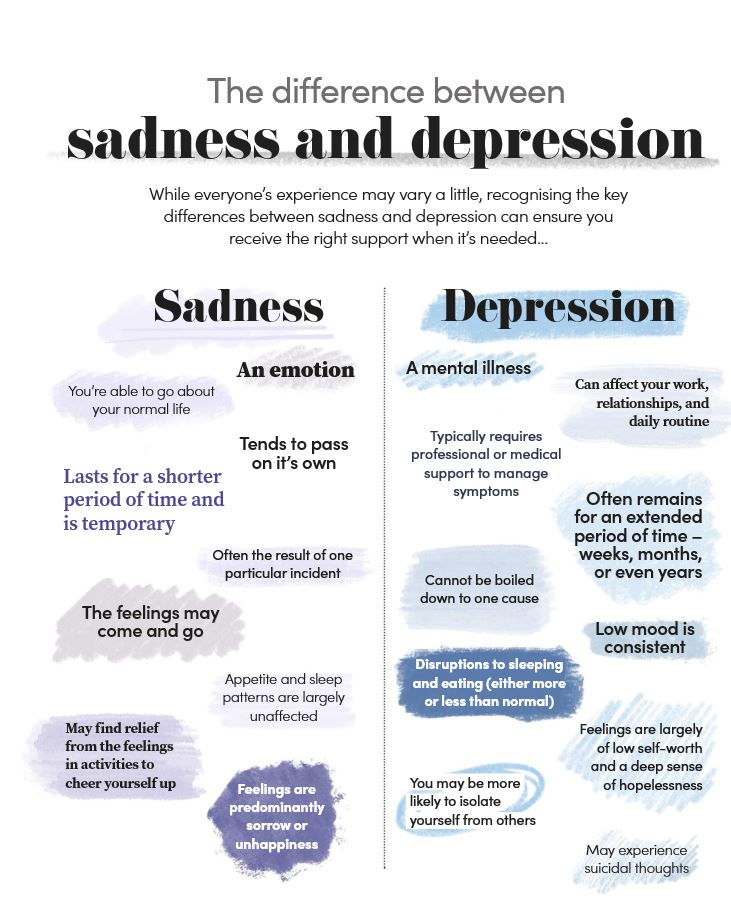
Most people experience low mood at some point in their lives. Feeling low may last for a couple of days or over a week but usually gets better over time. Your low mood could be caused by something that recently happened in your life or it could occur randomly without an obvious reason. If low mood is affecting your life, there are things you can do and small changes you can make to improve your mood.
Symptoms of a general low mood may include feeling:
- Sadness
- Anxiety or panic
- Feeling more tired than usual or being unable to sleep
- Experiencing more anger or frustration
- Feeling low on confidence or self-esteem
Improving your mood
- Talk about your feelings with people you trust
- If you feel uncomfortable you could call an anonymous help line
- Try mindfulness learn more
- Journaling activities
- Stay connected with others
- Do activities you enjoy
- Improve your sleep
- Stay active
- You could join a support group. For example:
- The Out of Blues community runs weekly coffee mornings for its members in Dubai. Details can be found on the group’s Facebook page
- Abu Dhabi Major Depression and Anxiety Support Group holds events for their members on alternate Thursday evenings. The group can be found on the social web host meetup.com.
- Facebook community In Your Shoes runs a support group for people suffering from depression, anxiety and obsessive compulsive disorders.
- Support Group for Anxiety & Depression – German Neuroscience Center (gncdubai.com)
- Use music to increase your mood
- Challenge unhelpful thoughts
The difference between low mood and depression

Depression
Depression is a mood disorder marked by persistent sadness and diminished interest in things that you used to enjoy. It affects your thoughts, feelings, and behaviours in a number of ways. Depression interferes with your daily life by making it difficult to manage your routines, responsibilities, and relationships. Read more
- If you are worried you might have depression please speak to a medical professional and if you are not sure what type of support you need you can check out our mental health continuum.
- If you would like to find doctors near you. Check out our directory.
- This page cannot be used for a substitute for a diagnosis but if you need urgent support check out our in crisis page.
